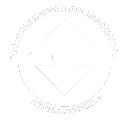Updated: August 2023
Wet wipes can clog and damage your septic system. Even “septic safe” or “flushable” wet wipes are not always safe for septic systems. There are wet wipe alternatives that are safe for your septic system and provide the same hygienic benefits as wipes.
There are no chemicals or products that will reliably dissolve baby wipes in your toilet or septic tank. Many baby wipes are made from synthetic polymers chemically bonded together into a durable cloth that take a very long time to break down inside the sewer system naturally. As such, a baby wipe clog will normally require snaking or a professional.
You might be thinking of going right out and buying some flushable wipes, but not so fast. Believe it or not, “flushable” wipes really should not be flushed down your toilet. Of course, you can technically flush these wipes in your toilet. You can also flush nails down a toilet, but no one would recommend it.
Despite the fact that wipes marketed as “flushable” technically pass requirements to be safe for sewage or septic systems, cities around the world have been finding out the hard way. The same reason that wipes are so useful as cleaning instruments is the same reason they are so bad to flush; they don’t break apart easily.
When normal toilet paper comes into contact with water, it pulls apart and deteriorates, like most paper products. Wet wipes (or disposable wipes), by contrast, are designed to maintain their consistency when soaked. That’s great for your cleaning purposes, but lousy for city sewage systems. When you flush that wipe down the toilet, you’re sending a soggy, solid mass down into the sewers.
While toilet paper will mostly break down inside a septic tank and healthy bacteria can also feed off some of the organic material wipes are made with (cellulose in the paper fibers). Wet wipes often contain a mix of fibers including cotton and rayon, as well as, plastic resins like polyester, polyethylene, and polypropylene. This adds to the solid sludge layer at the bottom of the tank. It really won’t dissolve and the septic tank will need to be pumped out. Septic pumping is the biggest recurring expense of maintaining a septic system.

